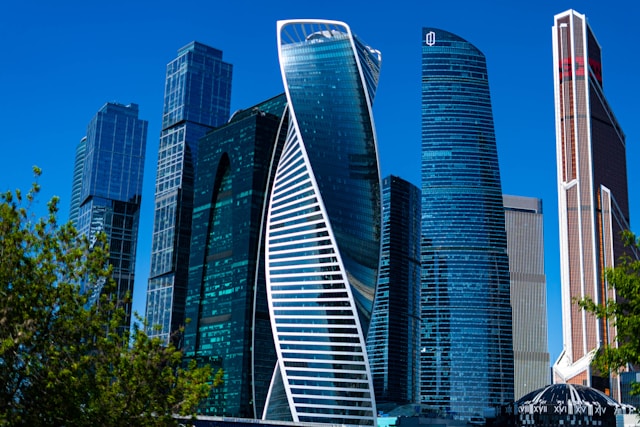The Kazakhstan Entrepreneur Who Took on Wall Street

When Timur Turlov started a small brokerage firm in Almaty back in 2008, most Western investors couldn’t even point to Kazakhstan on a map. Today, his company Freedom Holding Corp operates across 19 countries and manages billions in client assets. Not bad for a guy who started out in a region where most people still kept their savings under the mattress.
Table of Contents
Starting From Scratch in Central Asia
Picture this: It’s 2008, the global economy is melting down, and a 21-year-old Russian finance graduate decides it’s the perfect time to start a brokerage firm in Kazakhstan. Everyone thought Turlov was crazy. The local market was tiny, regulations were murky, and most Kazakhs had never bought a stock in their lives.
But Turlov saw something others missed. While teaching finance courses in Almaty, he kept meeting young professionals who wanted to invest but had nowhere to go. The big international banks ignored them – too much hassle for too little profit. Local banks offered nothing beyond basic savings accounts. There was a massive gap in the market, and Turlov decided to fill it.
He didn’t have deep pockets or powerful connections. What he had was a laptop, a rented office, and the stubborn belief that regular people in Kazakhstan deserved the same investment opportunities as someone sitting in New York or London.
Building Trust Where None Existed
The biggest challenge wasn’t technology or regulation – it was trust. In post-Soviet countries, people had been burned too many times by pyramid schemes and bank collapses. Convincing someone to hand over their money to invest in something called “stocks” was like selling ice to penguins.
So Turlov did something unusual. Instead of fancy marketing campaigns, he started teaching free investment classes. Every weekend, he’d stand in front of a classroom explaining how markets work, what stocks are, why diversification matters. Some weeks only three people showed up. He taught anyway.
One early client, a schoolteacher from Almaty, invested her entire bonus – about $500 – in Russian blue chips through Freedom Finance. When she made a 30% return in six months, she told her whole school about it. Word spread. Slowly, people started to believe that maybe this investing thing wasn’t just for oligarchs.
The Tech Gamble That Paid Off
Here’s where Turlov made his smartest move. While competitors were still processing trades by phone and fax (yes, fax machines in 2010), he poured everything into building a trading app. His team worked 18-hour days coding a platform that could handle Kazakh tenge, Russian rubles, and US dollars all in one account.
People laughed at him for spending so much on technology in a market where half the population didn’t have smartphones yet. But Turlov was betting on the future. He figured that by the time Central Asian markets were ready for digital trading, Freedom would already be there waiting.
He was right. When smartphone adoption exploded across the region in 2013-2014, Freedom Finance was the only local broker with a working app. Suddenly, a taxi driver in Bishkek could buy Apple stock during his lunch break. A teacher in Tashkent could invest in Tesla from her phone. The app downloads went through the roof.
Going International (The Hard Way)
By 2015, Freedom Finance was dominating Central Asian markets. Most CEOs would have been happy to be the big fish in that pond. Not Turlov. He wanted to take Freedom global, starting with the United States. Again, people thought he’d lost his mind. A Kazakh broker competing in America? Good luck with that.
The regulatory nightmare alone would have killed most companies. Getting licensed in the US meant years of paperwork, millions in compliance costs, and rebuilding their entire system to meet American standards. Turlov’s team spent three years just preparing the application. They hired lawyers, recruited compliance officers, and basically created a parallel company just to meet US requirements.
But they pulled it off. In 2019, Freedom Holding Corp went public on NASDAQ. A company that started in a two-room office in Almaty was now trading alongside Amazon and Google. The kid from Russia who couldn’t get a job at a major bank was now running a publicly-traded financial firm.
Making Investing Boring (In a Good Way)
What makes Freedom different isn’t just the technology or the international reach. It’s the philosophy. Turlov believes investing should be boring – as simple and routine as paying your phone bill. No complicated derivatives, no high-pressure sales tactics, just straightforward access to global markets.
The Freedom24 platform reflects this approach. Want to buy Coca-Cola stock? Three clicks. Want to invest in German bonds? Three clicks. Want to set up a monthly investment plan? Three clicks. Everything is designed to remove friction and fear from investing.
They also did something radical for the industry: transparent pricing. No hidden fees, no surprise charges, no fine print. You know exactly what you’re paying before you click buy. In markets where financial opacity was the norm, this transparency became Freedom’s calling card.
The Education Mission
Even as Freedom grew into a billion-dollar company, Turlov never stopped the education programs. If anything, they doubled down. Freedom Academy now runs investment courses in multiple languages, reaching thousands of students monthly. They publish market research in Russian, Kazakh, and Ukrainian. They run YouTube channels explaining everything from PE ratios to portfolio rebalancing.
Why spend millions on education when they could just buy ads? Because Turlov learned early that an educated client is a loyal client. Someone who understands what they’re buying doesn’t panic during market drops. They don’t blame the broker when stocks go down. They become long-term investors, not day traders chasing quick profits.
Surviving Crisis After Crisis
Running a financial firm across emerging markets means dealing with constant chaos. The 2014 ruble crisis. The 2015 tenge devaluation. Ukraine conflict. COVID-19. Currency controls in Uzbekistan. Sanctions on Russia. Each crisis could have destroyed the company.
But Freedom’s distributed model turned out to be its biggest strength. When one market crashed, others stayed stable. When regulations changed in one country, they had operations in eighteen others. The company bent but didn’t break, adapting to each new reality while keeping client assets safe.
During the 2020 pandemic crash, while other brokers restricted trading or raised requirements, Freedom kept its platform open and actually lowered some fees. Turlov’s message to clients was simple: “Markets go up and down, but we’re not going anywhere.”
What’s Next?
Today, Freedom Holding Corp isn’t just surviving – it’s thriving. The company is expanding into Europe, launching digital banking services, and exploring cryptocurrency trading. But the core mission hasn’t changed since that first office in Almaty: give regular people access to the same investment opportunities as the wealthy.
Turlov still teaches occasional classes, now to packed auditoriums instead of empty classrooms. He still responds to client emails personally. He still wears the same style of simple blue suits he wore as a 21-year-old startup founder. Success hasn’t changed the mission.
The story of Freedom Holding Corp proves that you don’t need to be from New York or London to build a global financial company. You just need to solve real problems for real people. And maybe be a little crazy enough to start a brokerage firm during a financial crisis.







